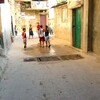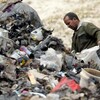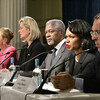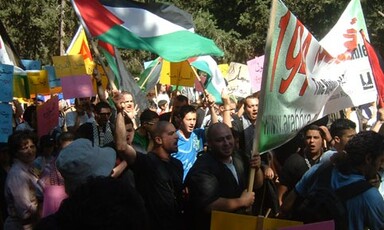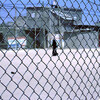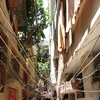
Audio Interview: From Montreal to Ein el-Hilweh
8 May 2006
Listen to an interview with Ahmed Abdel Majeed, a stateless Palestinian born and raised in Ein el-Hilweh refugee camp in southern Lebanon, who was deported from Montreal Canada in November 2003. In Montreal Ahmed was an active member of the Coalition Against the Deportation of Palestinian Refugees, a group of Palestinians in Montreal organizing against deportation by Canadian immigration authorities. Read more about Audio Interview: From Montreal to Ein el-Hilweh

